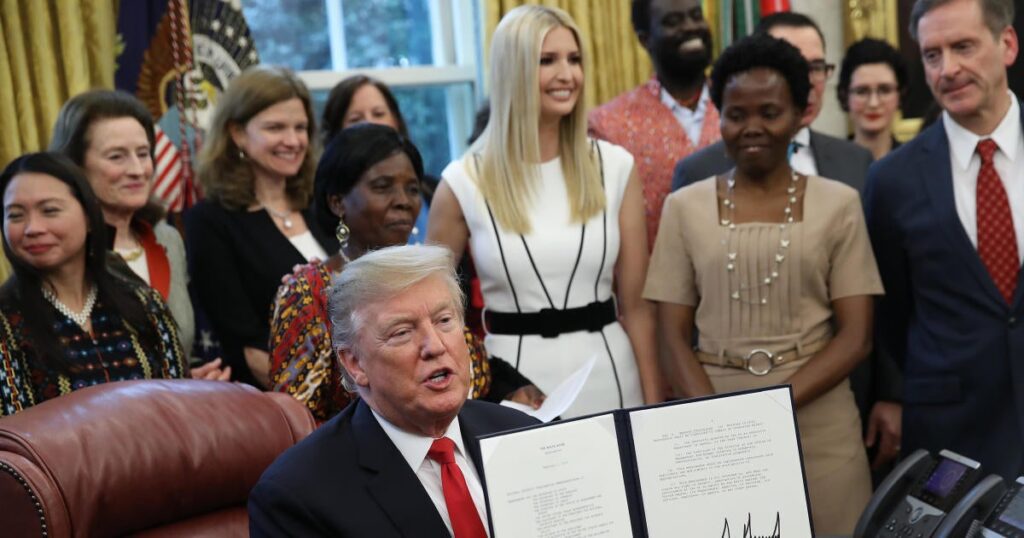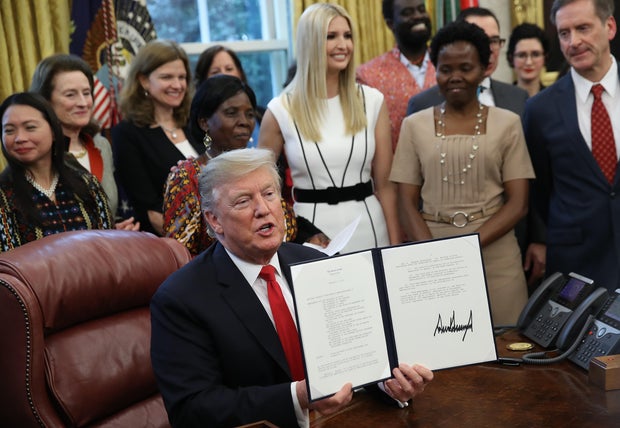Impact of USAID Funding Cuts on Women’s Economic Empowerment
The efforts by former President Trump and Elon Musk to significantly restructure the long-established USAID agency could lead to the loss of millions in U.S. funding that supports women’s economic empowerment globally. This includes initiatives that were promoted during Trump’s presidency by his daughter, Ivanka Trump.
Although Trump’s proposal to put nearly all USAID employees on leave is currently embroiled in U.S. court disputes, a halt on all new foreign assistance programs funded by the State Department and USAID, mandated by Secretary of State Marco Rubio at the end of January, continues to be effective.
The Women’s Global Development and Prosperity Initiative
Launched with the goal of assisting 50 million women in achieving their economic potential by 2025, the Women’s Global Development and Prosperity (W-GDP) Initiative aimed to serve as a unifying issue for both Republicans and Democrats, according to Ivanka Trump.
Lillian Achom, who was a project manager for AFCHIX, attended the W-GDP announcement at the White House in 2019. Ivanka Trump emphasized in a Wall Street Journal op-ed that this initiative would mark a significant step in strategically mobilizing the potential of women in developing countries.
The Trump administration pledged $50 million to the W-GDP, which was to be administered through USAID. Achom noted that Ivanka seemed sincerely invested in women’s development, sharing stories of success and community impact with genuine enthusiasm.
W-GDP’s Achievements and Challenges
The first year of the W-GDP is reported to have touched the lives of 12 million women. Under President Biden, the initiative’s focus continued through the Gender Equity and Equality Action Fund, which allocated $300 million directly, in addition to $200 million in indirect funding from 2021 to 2023, as documented by USAID.
A State Department representative acknowledged the ongoing examination of foreign assistance programs in the context of the America First agenda, which has raised concerns over the future of the W-GDP and similar initiatives.
Women’s Access to Technology
One of the primary concerns for the W-GDP was addressing the gender gap in technological access. Reports noted that over 1.7 billion women in low- and middle-income countries lacked mobile phone ownership and faced challenges in utilizing mobile internet.
Achom highlighted that rural communities in places like Africa struggle not only due to high costs associated with technology access but also because basic needs such as healthcare and education take priority.
The Broader Implications of Funding Cuts
In regions like northern Uganda, USAID funding has been crucial in providing continuous supplies of antiretroviral medications to combat HIV, filling gaps left by limited governmental support. Achom emphasized that USAID has fostered relationships in communities, continuously offering grants to bolster access to both healthcare and economic opportunities.
She warned that discontinuing USAID-funded programs would not just hurt women’s access to technology but would also hinder community progress in reducing poverty.
“The entire community’s ability to rise out of poverty would be significantly hampered,” she stated.



